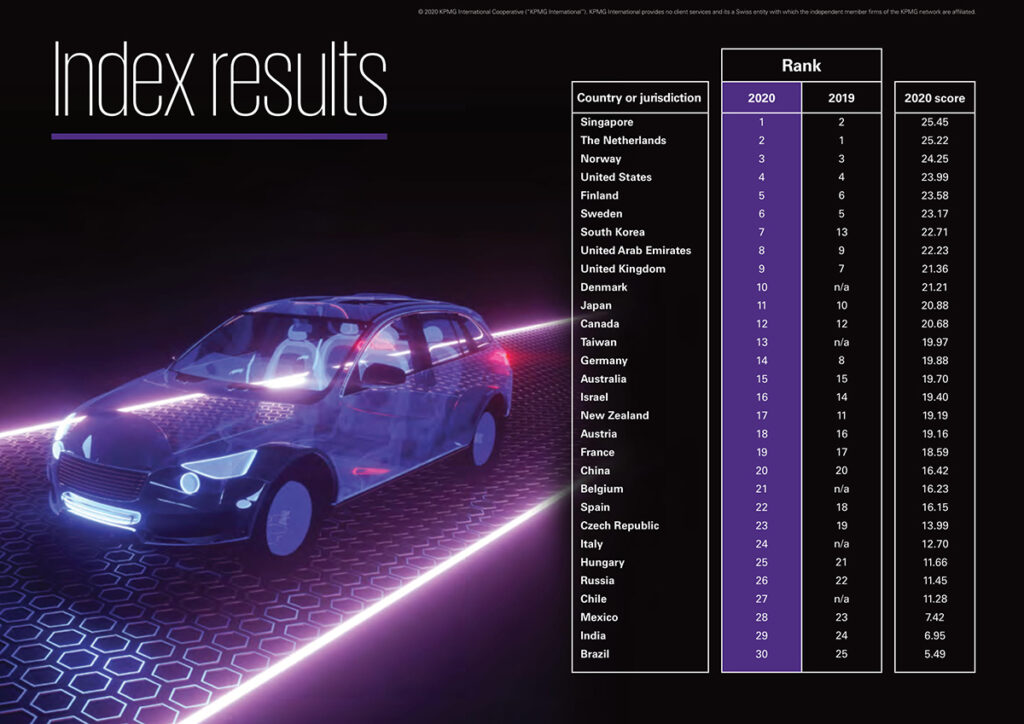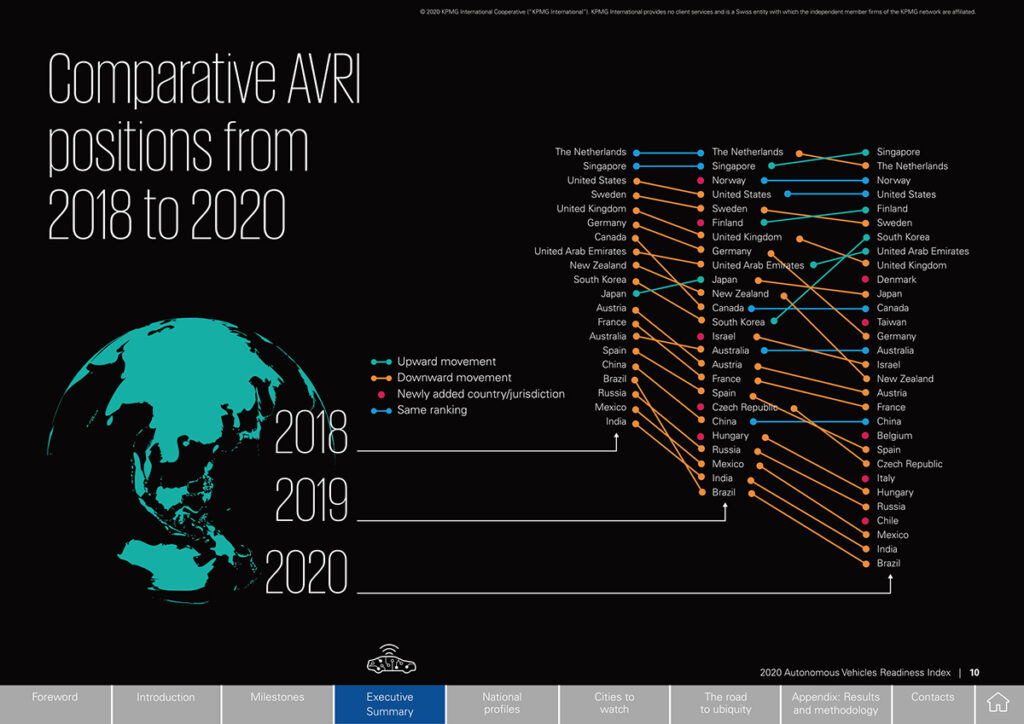
Singapore Tops Autonomous Vehicles Readiness Index For the First Time
by Fintech News Singapore July 10, 2020According to this year’s KPMG Autonomous Vehicles Readiness Index (AVRI), Singapore has emerged as the country that is best prepared for the adoption and acceptance of Autonomous Vehicles (AV), with Singapore ranking first in the Index.
This marks the first time that Singapore has led the AVRI, edging out the Netherlands which has ranked first in the past two editions of the Index. Singapore’s ranking reflects its leadership in areas of consumer acceptance and policy as well as legislation pillars.

Satya Ramamurthy
“Singapore’s pole position in the KPMG AVRI in 2020 reflects the local government’s commitment and continued efforts to build receptivity and adoption of AV. The decision to expand testing areas for AV to one-tenth of the public roads and ongoing investments in the electrification of transport – an important pre-cursor for AV adoption, which we have been advocating– were key factors among others that led Singapore to top the Index,”
shared Mr. Satya Ramamurthy, Partner, Head of Infrastructure, Government & Healthcare, KPMG in Singapore.
“The ongoing Covid-19 situation has brought about new requirements for transport such as a need for more contactless interactions or better crowd control, all of which can be addressed through AV technology. We believe that continued developments in AV regulation and infrastructure along with improving overall public awareness will continue the transformational potential of AV technology for not just Singapore but all countries,”
he added.
The 2020 KPMG AVRI, the third edition of the index, evaluates the progress of 30 countries and jurisdictions in adopting and moving forward with AVs, and finds the majority of countries have in fact increased their AV readiness in the past year. Expanding the use and ultimately integrating AVs into daily life depends to a large extent on what countries, jurisdictions and localities do to further AV development and deployment.

The AVRI measures countries and jurisdictions across 28 indicators to assess their readiness and progress in furthering AV deployment and innovation. The indicators are organized under four pillars: policy and legislation, technology and innovation, infrastructure and consumer acceptance.
Understanding Singapore’s ranking on the AVRI
As a country, Singapore’s ranking reflects the numerous steps it has taken since the start of 2019 to further the progress of AVs. The regulatory and governance environment for AV is optimal, where Singapore has now published national standards for AVs and opened a tenth of all public roads to AV testing. The February 2020 national Budget includes S$6 million to support AV testbeds. The government has also made additional investments in ensuring there is the right resources and human capital for the adoption of AV, this includes retraining of public transport drivers specifically in preparation for driverless vehicles.
Singapore is also leading the promotion of electric vehicles (EV), a critical precursor to AVs. The country has plans to massively increase the number of EV charging stations, from 1,600 to 28,000 by 2030. As a testament to the city-state potential and receptivity to adopting AVs, it has attracted investments from various private sector entities setting up different innovation and research centres to further develop AV capabilities.
Which countries and jurisdictions are most ready for autonomous vehicles?

Overall, the 2020 AVRI shows that the majority of countries have ramped up their AV readiness, with 17 of the 25 countries profiled in the 2019 AVRI increasing their scores in 2020. AV pilots and testing areas in particular are expanding – approximately two-thirds of the 30 countries and jurisdictions in the AVRI have areas designated or approved for AV testing.
The US stands out with 420 AV company headquarters – 44 percent of all those tracked in the report, including technology companies such as Google’s Waymo unit and vehicle makers such as General Motors and Ford, leading in AV development.
South Korea saw the biggest year-over-year rise of any country in the Index, climbing six places to seventh from 2019 to 2020. The country was propelled by the introduction of a national strategy for AVs, published in October 2019, which is hoped to reduce road deaths in the country by three-quarters.

Featured image credit: Unsplash






